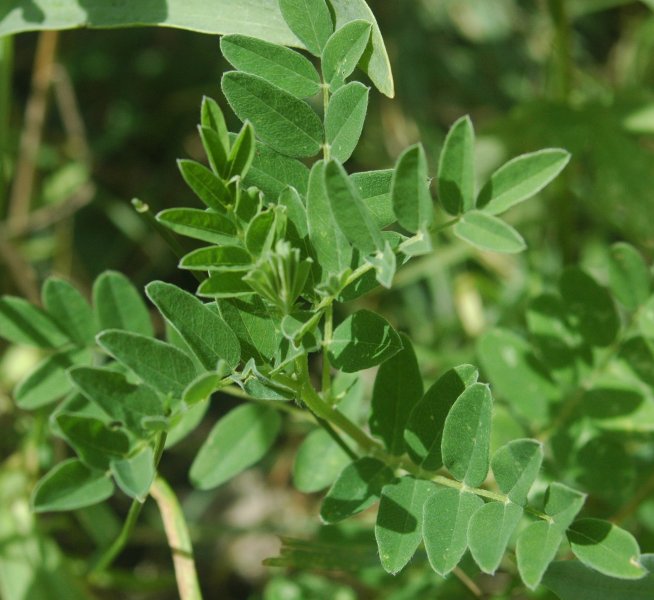By Steph Zabel
Herbalist & Ethnobotanist
A sweet tasting, yellow-rooted plant, astragalus is an important herb for the home apothecary, especially in the winter months. Every fall I pull out my stash of sliced roots and start incorporating them into my soups and broths (more on that later…)
This special plant is native to China where it has been used for thousands of years; it is becoming more and more popular in Western herbalism and is now cultivated in the U.S.
In Traditional Chinese Medicine astragalus is considered to be a restorative tonic, as it improves energy and stamina when used over time. Modern herbalists would call it an adaptogenic herb since it helps the body to overcome stress, disease and weakness and increases one’s resiliency.
An important immune system tonic, astragalus is wonderful when used preventatively against winter-time illnesses such as colds, flu, bronchitis and pneumonia. Not only does this root increase resistance to disease it also helps to tone and strengthen the lungs, which are the gathering place for infections and congestion. Astragalus root is also known to increase the number of stem cells in bone marrow and lymph tissue and encourages their development into active immune cells.
Photo by Tigerente via Wiki Commons
Whereas some herbs can open the body up to release toxins and pathogens through perspiration (such as a diaphoretic herb like elderflower), astragalus is on the opposite end of the spectrum: it helps to close off the body to outside influences and germs. Because of this closing or sealing action some people have even noticed that it reduces the amount that they perspire. This property is very useful when we are trying to avoid catching other people’s germs, especially during cold and flu season. We can think of astragalus as a shield against illness. Traditional Chinese medicine states that it increases the “protective chi” around the body that keeps out cold, infection and external influences.
Photo by Doronenko via Wiki Commons
You want to be sure to use this amazing action at the appropriate time, though. Because of the sealing property it has on the physical body traditional wisdom advises to avoid astragalus if you are sick or have an acute infection. That’s because it closes the body to external influences and prevents fewer things from coming in OR going out. Astragalus really is an herb best used to strengthen the immune system and prevent sickness… it is not for times of acute illness. (Depending on what’s going on, you could turn to other herbs such as thyme, elder and/or echinacea.)
HOW TO USE ASTRAGALUS:
To make a decoction of the root use 1 Tblsp. of the dried root per 2 cups of water and simmer for at least 20 minutes in a small, covered saucepan.
CONTRAINDICATIONS:
People with autoimmune disease should avoid astragalus. It is also believed that astragalus should not be taken during acute illness and infection.
RECIPE:
Astragalus slowly builds up the immune system and needs to be taken over longer periods of time (weeks to months) to be most effective. For prevention and immune-strengthening effects take daily. One of the best ways to get the supportive benefits of this herb is to eat it in soups and broths. The following recipe is one of my favorite ways to incorporate astragalus into my diet during the fall and winter months:
Steph’s Herbal Chicken Broth
bones, skin and leftovers of one roasted chicken
1 - 2 small chopped onions
2 chopped carrots (optional)
a handful of dried calendula flowers
6 - 8 large astragalus root slices
1 tablespoon black peppercorn
1 tablespoon dried thyme
4 cloves sliced garlic
1 star anise
1 small bunch of parsley, coarsely chopped
a little bit of salt
3 tablespoons apple cider vinegar
Place everything in a large pot and cover with water. Bring to a boil then lower the heat to a simmer. Skim off the scum that rises to the top. Cook for 12 - 24 hours, then strain and store in glass containers or freeze.
References:
Steph Zabel, MSc, is an herbalist and botanical educator who helps urban dwellers connect with the plant world. She teaches seasonally-oriented herbal classes that focus on local plants, herbal medicine-making techniques, and plant identification. She is also the creator of Herbstalk, Boston’s community herbal conference. Learn more about her work at: www.flowerfolkherbs.com and www.herbstalk.org.
This blog series — Herbs and Botanicals— is for general health information only. This Web site is not to be used as a substitute for medical advice, diagnosis or treatment of any health condition or problem. Users of this Web site should not rely on information provided on this Web site for their own health problems. Any questions regarding your own health should be addressed to your own physician or other healthcare provider.






